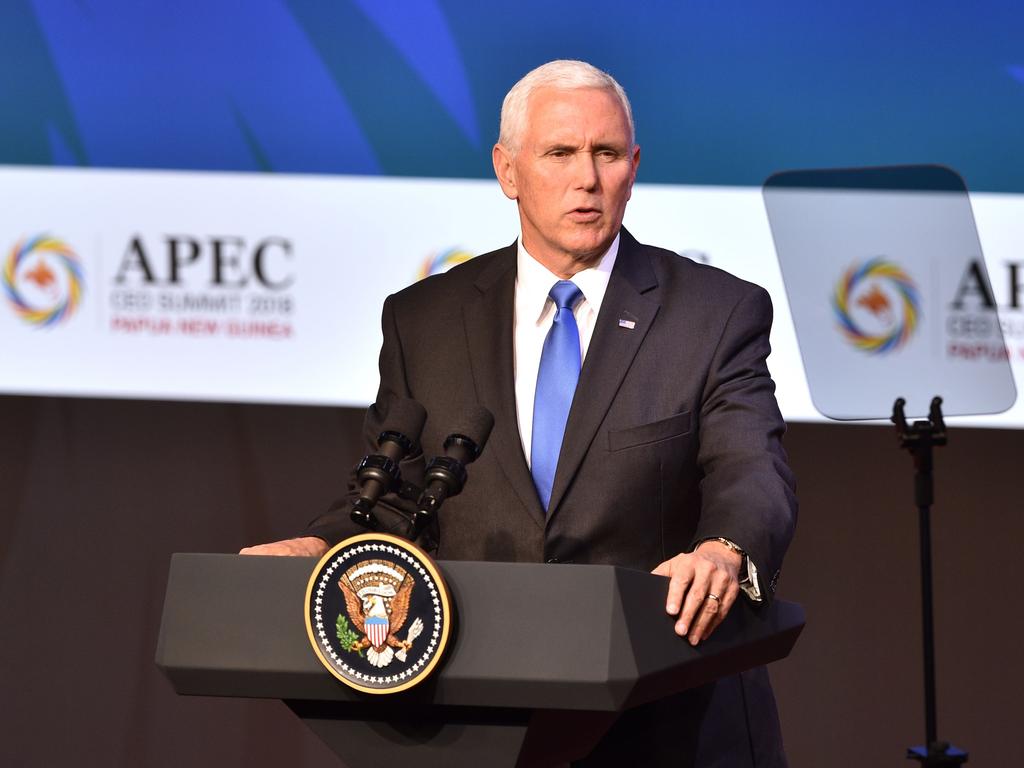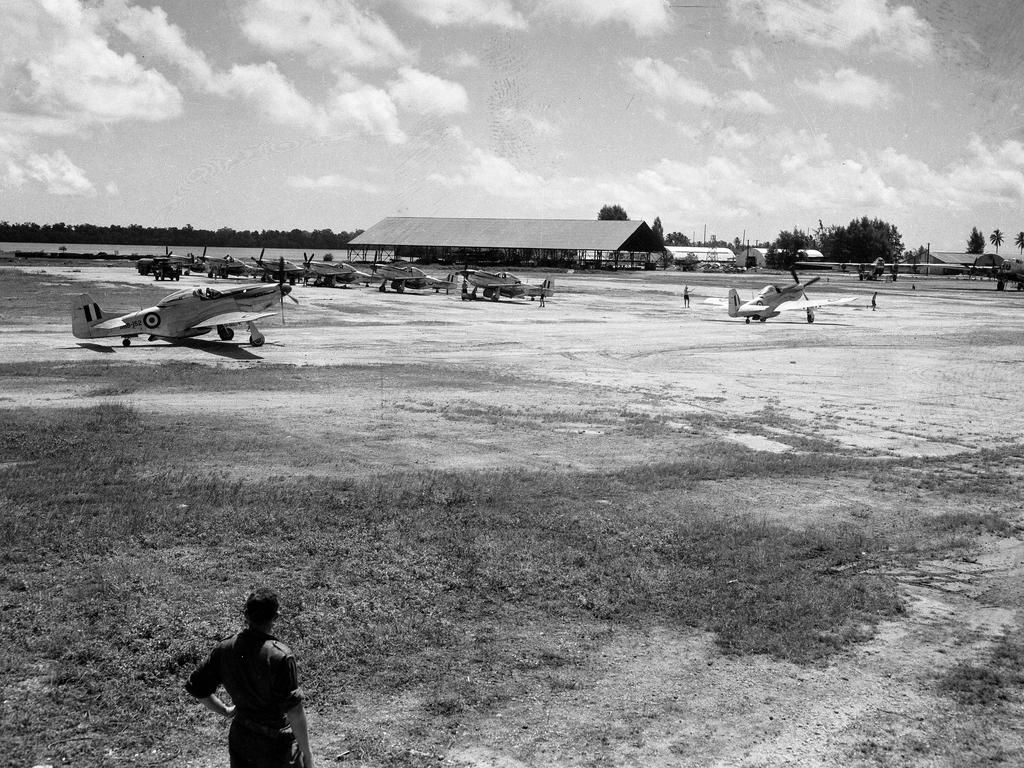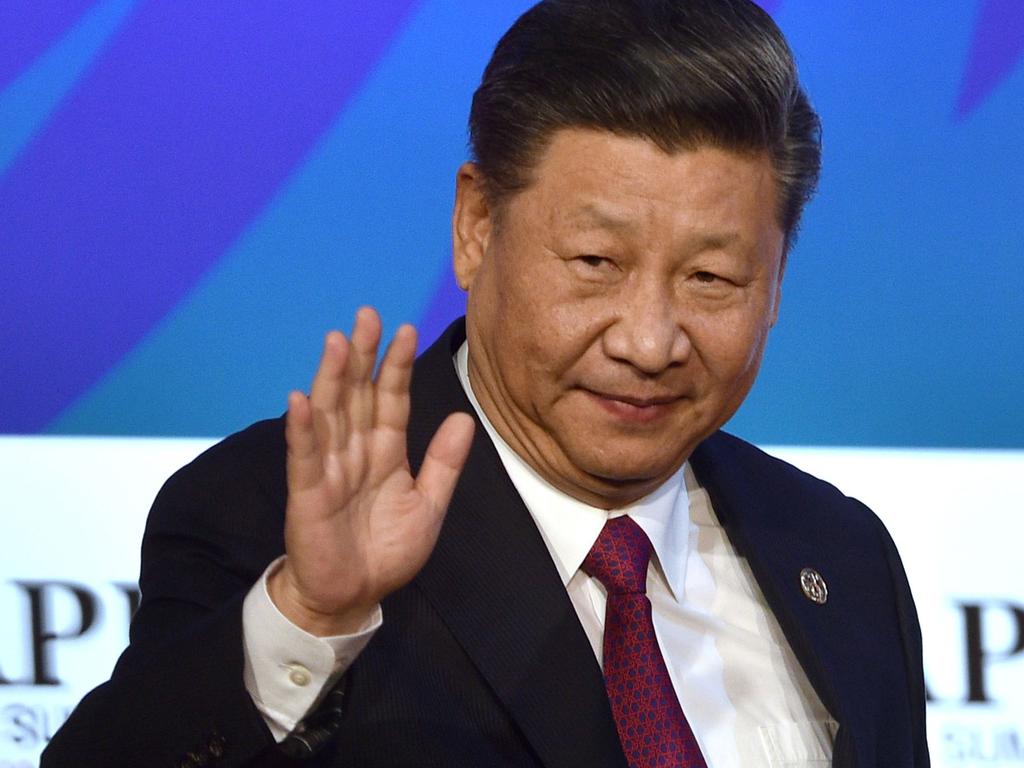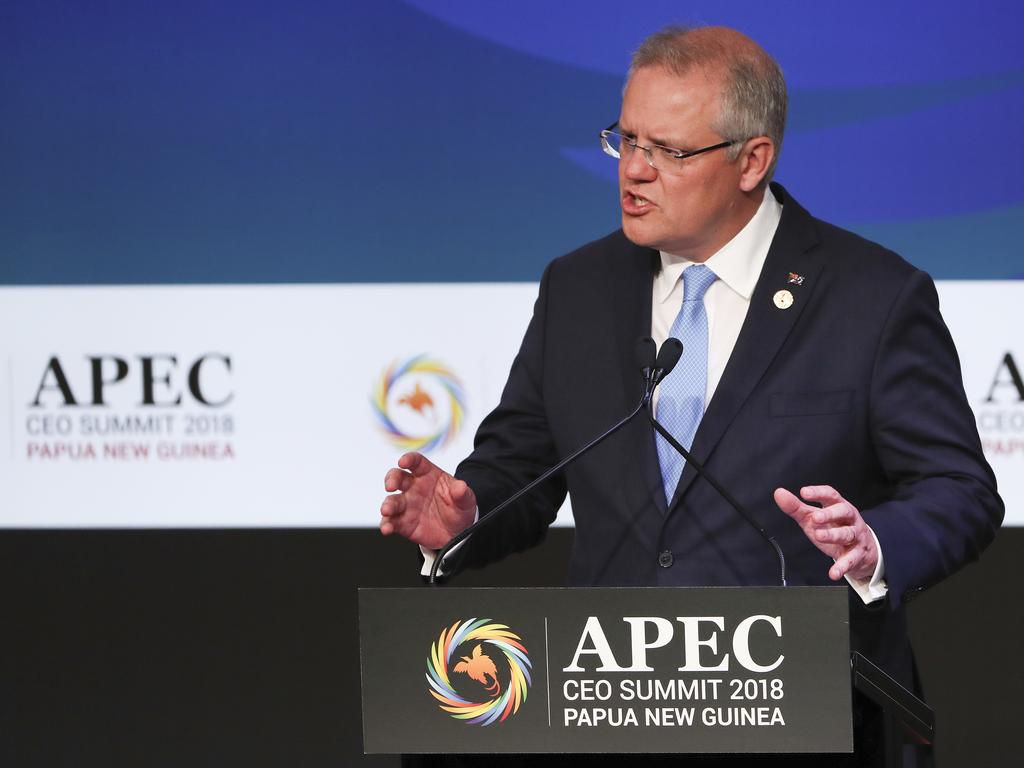Prime Minister Scott Morrison warns China about ‘unsustainable debt’ tactic
Vice President Mike Pence says the US will work with Australia to building a major new military base on Manus Island, and warned of China’s ‘one way’ new Silk Road.
US Vice President Mike Pence has taken a hard line against China in the presence of President Xi and Asia-Pacific leaders.
“Today it is my privilege to announce that the US will partner with PNG and Australia on their joint initiative on Manus Island,” the Vice President declared.
Earlier this year, Australia committed to upgrading the old World War II facility on Manus Island in conjunction with Papua New Guinea in an effort to beat China to the key strategic outpost.
The US has now seized upon it as a means of countering what Beijing calls its ‘second island chain’ ambitions, which extend from Japan in the north to Guam in the east.
RELATED: Australia is ‘sleepwalking’ into war — former defence chief

Pence announced the move in a speech in which he went all-out against China’s expanding regional influence.
“The United States offers a better option,” he said.
“We do not offer a constricting belt or a one-way road. Do not accept foreign debt that could compromise your sovereignty.”
He said the US would continue economic sanctions - and freedom of navigation exercises.
“The United States will not change course, until China changes course,” he told the gathered leaders at the APEC conference in Port Moresby.
“As the President said today: we have great respect for President Xi and we have great respect for China, but, in his words, China has taken advantage of the US for many years. Those days are over.”

China and the US are currently in a bitter trade war, with both countries having imposed tariffs worth billions of dollars on each other’s goods. There is little sign of an immediate easing in tensions, with both sides threatening to step up action if necessary.
Chinese President Xi Jinping told the same forum that protectionist actions were shortsighted and doomed to fail, stressing that there would be no winners from a trade war or a new cold war.
“Attempts to erect barriers and cut close economic ties work against the laws of economics and the trends of history. This is a shortsighted approach and it is doomed to failure,” Xi told business leaders on the sidelines of the summit.
“We should say no to protectionism and unilateralism,” the Chinese President said, in a veiled attack on the “America First” policies of Donald Trump’s administration.
He added countries were facing a choice of co-operation or confrontation as protectionism and unilateralism spreads.
“Mankind has once again reached a crossroads,” he said.
“Which direction should we choose? Co-operation or confrontation? Openness or closing doors. Win-win progress or a zero sum game?”

In an earlier speech, Australian Prime Minister Scott Morrison also said Pacific nations should not be loaded up with “unsustainable” debt, in a shot at China’s growing influence.
The prime minister this morning addressed the Asia Pacific Economic co-operation meeting in Port Moresby, immediately before Chinese President Xi Jinping and United States Vice President Mike Pence.
He said developed nations must work in partnership with Pacific countries, rather than put huge debt obligations on them.
His comments come against as Beijing attempts to cement new influence throughout the South Pacific and Indian Oceans.

Trade wars benefit no one and must be solved by negotiation rather than tit-for-tat tariffs, the Prime Minister said.
The world is facing a “rising tide of trade protectionism” and financial market volatility, Scott Morrison warned during his speech to business leaders ahead of the two-day summit of Asia-Pacific leaders.
“The solution is not throwing up protectionist barriers,” he said. “Tit-for-tat protectionism and threats of trade wars are in no one’s interest economically and undermine the authority of the global and regional trade rules that benefit us all.”
“The solution to perceived unfair trade practices is more likely to be found around a negotiation table than it is in building a tariff war,” urged Morrison.
Australia would “continue to advocate for trade disputes to be resolved by negotiation and within WTO rules.”
He acknowledged that the World Trade Organisation “was not perfect” and pledged to work with “like-minded countries to improve it.”
Reform of the WTO is a topic that is likely to sow division at the summit. Foreign ministers meeting ahead of the talks were unable to publish a joint statement, apparently due to difference over language on WTO reform.



